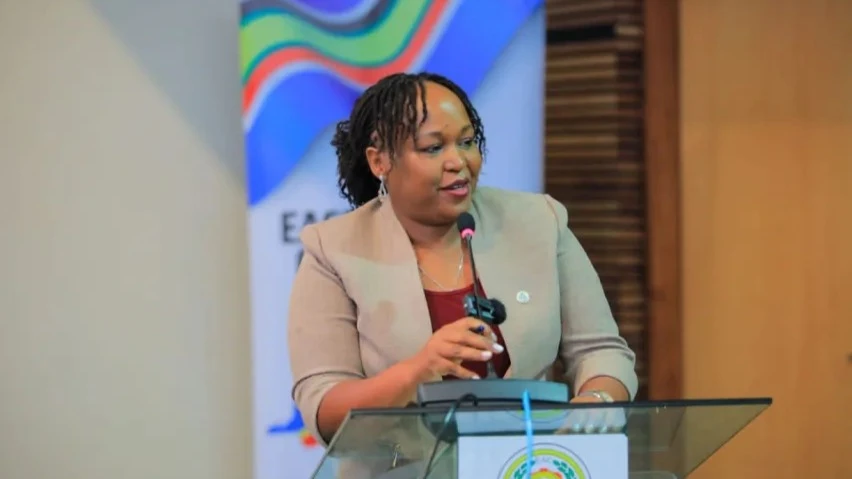
By Our Correspondent | Africa Guardian
Intra-regional trade among East African Community (EAC) member states is poised for significant growth if the private sector actively promotes the “Buy East African, Build East Africa” initiative. Veronica Nduva, the EAC Secretary General, made this call at a roundtable discussion for chief executives from major companies within the East African Business Council (EABC).
The EABC CEOs-Secretary General Round Table, organized with the theme of enhancing intra-EAC trade and investment by overcoming barriers and seizing opportunities, was held in collaboration with the German investment agency GIZ. The event received sponsorship from prominent organizations including Isuzu, Tanzania Cigarette Co. (TCC), Stanbic Bank, Groupe EIS-EKA from Bujumbura, and Tanzania Breweries Ltd (TBL).
During the roundtable, Nduva highlighted significant progress made by the EAC, such as the streamlining of clearance processes through the single customs territory arrangement. This centralised platform facilitates real-time exchange of customs and trade data, automating priority clearance for compliant traders.
She also noted that the EAC’s efforts in improving border efficiency through one-stop border posts (OSBPs) have resulted in a 70% reduction in border crossing times and annual savings of over $63 million. Furthermore, since 2007, 274 non-tariff barriers (NTBs) have been addressed, with the recent launch of the NTB App simplifying NTB reporting.
Nduva urged the private sector to collaborate with the EAC to improve access to affordable financing for small and medium enterprises (SMEs). The secretariat is exploring climate finance opportunities under the East African Sustainable Growth (EASG) framework, aiming to establish dedicated financial instruments such as low-interest loans, grants, and venture capital for SMEs. This initiative requires active private sector engagement to integrate SMEs into the regional compliant trader program, which has already reduced fraud and delays.
Dennis Karera, EABC Vice Chairman, stressed the need for governments to translate policies into actionable steps to boost intra-EAC trade and investment. He highlighted key areas for improvement, including liberalising air transport services, mutual recognition of professionals, abolishing work permits, and harmonizing domestic taxes. These measures, alongside the elimination of long-standing non-tariff barriers, will help businesses maximise opportunities within the EAC Customs Union and Common Market, which serves over 300 million consumers.
Karera projected a growth rate of 5.1% for the EAC zone in 2024 and 5.7% in 2025. Adrian Njau, acting executive director of the EABC, emphasized that as the voice of the private sector in East Africa, the EABC seeks policies that unlock barriers and drive trade and investment in the region. Currently, intra-EAC trade accounts for 15% of total trade, amounting to $12.2 billion in 2023, with 85% of regional trade still directed outside the continent. The EABC aims to increase intra-regional trade by 40% by 2028 through enhanced public-private dialogue and strategic approaches.
The roundtable also addressed issues within the manufacturing sector, including the impact of illicit trade and the automotive value chain. It brought together 70 industry leaders from across East Africa, providing a platform for discussing private sector policy advocacy priorities and reviewing the progress of EAC commitments to boost both intra- and extra-regional trade and investment.
